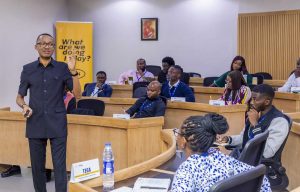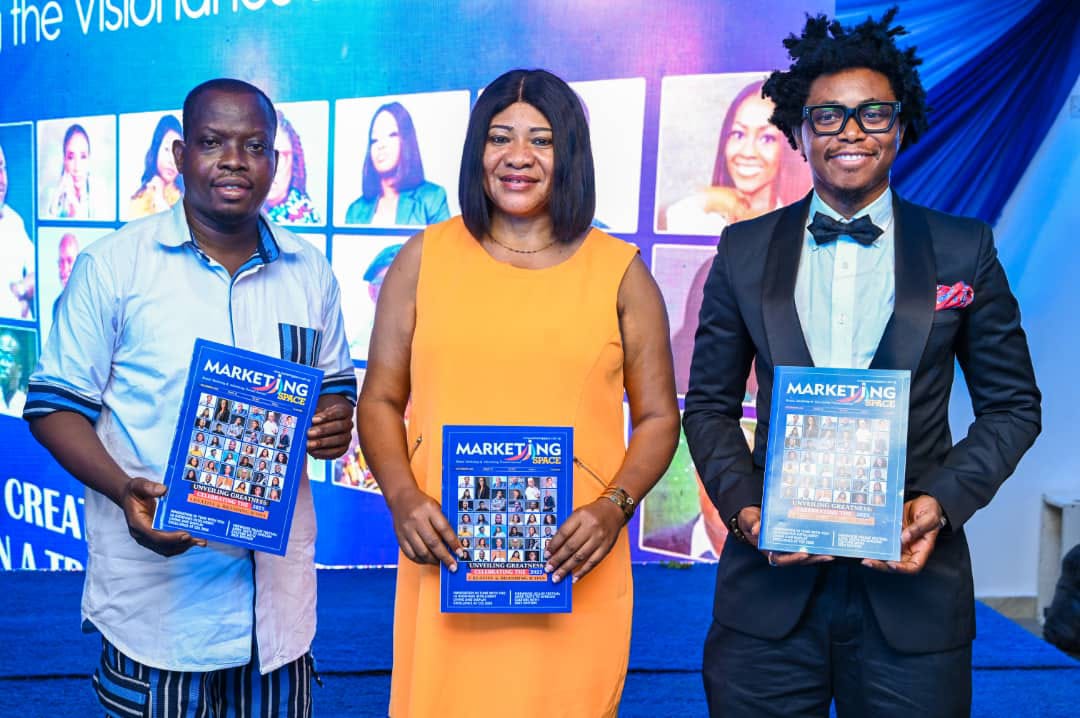The media landscape is rapidly changing. The rise of new technologies and the proliferation of Artificial Intelligence (AI)-generated content pose significant challenges to information dissemination and have pressured academic institutions to evolve.
In response, Pan-Atlantic University (PAU) School of Media and Communication is reshaping its curriculum to prepare a new generation of professionals for the future of media. ADAKU ONYENUCHEYA, an MTN Media Innovation Programme Fellow, writes.
IN 2020, Nigeria’s National Universities Commission (NUC) unbundled the mass communication degree into several specialised fields.
This strategic move allows students to focus on specific areas that align with their career goals, bringing communication education in line with global best practices.
This move not only allows students to specialise in areas that align with their interests and career goals, it also brings the communication education system in tertiary institutions in line with global best practices by incorporating emerging fields and technologies.

In today’s technology-driven media landscape, tertiary institutions are upgrading their communication curricula to include innovative, technology-focused courses, equipping students with the tools and skills to be creative in journalism, public relations, advertising, digital media, and filmmaking.
The School of Media and Communication (SMC) at PAU has been a trailblazer in this evolution. Since its establishment in 2006, SMC has leveraged emerging technologies to nurture creative thinkers, ethical journalists, and innovative media professionals.
The school offers a range of programmes—from BSc and postgraduate diplomas to master’s and doctoral degrees—in diverse fields like journalism, filmmaking, corporate communications, and digital media. Its core mission is to form professionals grounded in creativity, ethical conduct, social responsibility, and an entrepreneurial spirit, with the vision of becoming Africa’s leading hub for media education and research.
Building industry-ready graduates
Nigerian tertiary institutions have often been criticised for their lack of modern facilities, which can hinder practical learning and leave graduates unprepared for the job market.
This was corroborated by the European Union (EU)-accredited Open Institute of Technology (OPIT), which expressed concerns over the mode of operation of tertiary institutions in Africa, insisting that much emphasis is placed on theory rather than on practical applications.
This is where SMC stands out. The school offers a high-tech learning environment, complete with modern editing suites, digital newsrooms, film production labs, podcast studios, and radio and television studios.
Learning at SMC goes beyond the classroom. Students get hands-on experience through film shoots, script development, brand campaigns, and investigative reporting simulations for real-world organisations. Faculty members, many of whom are industry veterans, work closely with students to ensure their skills meet global standards.
SMC also focuses on developing students as entrepreneurs and leaders. The school’s business-focused modules and strong partnerships with media houses, advertising agencies, and corporate organisations provide students with valuable internships and connections.
The results are clear: SMC alumni have gone on to work at top firms like The Guardian, Cable News Network (CNN) Africa, the British Broadcasting Corporation (BBC), Channels TV, Television Continental (TVC), MTN, Public Relations and advertising firms, and other corporate organisations, while others have successfully launched their own startups.
Adapting to a changing media landscape
IN an era of misinformation, AI-generated content, and rapid digitalisation, SMC is constantly adapting. New electives and professional programmes focus on digital storytelling, fact-checking, data analytics, and the intersection of media and technology.
American writer Alvin Toffler once said, “The illiterate of the 21st century will not be those who cannot read and write, but those who cannot learn, unlearn, and relearn.” SMC embodies this philosophy by offering a range of certificate programmes for working professionals, including the MTN Media Innovation Programme (MIP), which is a key initiative.
The MTN MIP, a six-month, fully-funded fellowship, was launched in 2022 to empower media professionals with the skills needed to navigate the ever-evolving media landscape.
Participants gain a deeper understanding of the technology sector and learn to use technology for impactful storytelling. The programme includes a study trip to the University of Johannesburg and visits to media and innovation hubs in South Africa.
According to the Chief Corporate Services & Sustainability Officer at MTN Nigeria, Tobe Okigbo, the programme is a testament to the company’s commitment to a free and independent press.
Dr Ikechukwu Obiaya, Dean of SMC, adds that the programme is designed to cultivate a new generation of media professionals who will drive innovation and excellence.
What The Professionals Say
FOR participants in SMC’s certificate programmes, the balance of professional and personal growth is what truly sets the school apart. Some of them, who are mostly journalists, the experience prompted them to ask deeper questions about the profession: “Why do we tell stories the way we do? What role do ethics and integrity play in what we publish? How can we leverage technology to inform and not mislead?”
My MTN MIP experience and encounter with the SMC reminds me that media, when done right, is one of the noblest professions that shapes society, defends democracy, and preserves truth.
Also, my takeaway from the various classes I attended is the realisation that media education must evolve with the changing times.
However, my experience was mind-blowing with tours to MTN cable station and Huawei’s 5G innovation hub, both in Lagos, reshaping my knowledge on the telecommunications industry and the challenges.
Commenting, one of the pioneer MIP participants, the Deputy Business Editor/ICT Editor, The Guardian Newspaper, Adeyemi Adepetun, said the programme provided participants with a deeper understanding of the evolving media and technology landscape. This includes expert-led sessions on media innovation, the telecommunications industry, writing and reporting, and media diplomacy.
According to him, participants gained practical skills in areas like data journalism, content creation, and audience engagement strategies.
“The programme remains a ‘life-changing’ or ‘career-defining’ experience. It enabled us to challenge old ways of thinking, become “industry disruptors,” and secure new positions or greater responsibilities within our organisations. The programme empowered us to achieve career and financial success in a dynamic environment.
“The MIP encourages a shift in perspective, helping participants to unlearn, learn, and relearn. It fosters a spirit of innovation, enabling them to create impactful content and develop sustainable business models for the media industry,” he stated.
Abbas Olasunkanmi Jimoh, an Assistant Editor at Daily Trust Newspaper, described the training as a transformative journey that reshaped his perspective on life and leadership.
“My experience in this programme is like I have not attended school before. Each of the modules is unique, profound, and practical; and the facilitators are well-experienced,” he said.
Similarly, Emma Okonji, ICT Editor at Thisday Newspaper, called the programme a “deep learning curve” that opened his eyes to new opportunities in the technology sector. Ruth Ojougboh, Advisory Board Chairman at NVE Studios, praised the school’s hands-on approach, highlighting that the facilitators were experienced professionals rather than traditional teachers.
These testimonials prove that the School of Media and Communication at Pan-Atlantic University is not just teaching; it is empowering students and professionals with the knowledge, practical skills, and ethical foundation needed to succeed in a complex and ever-changing world.






